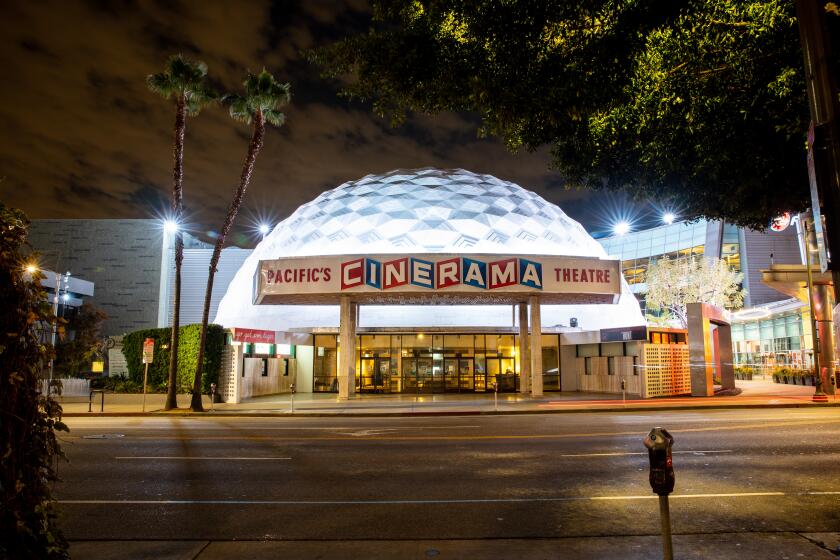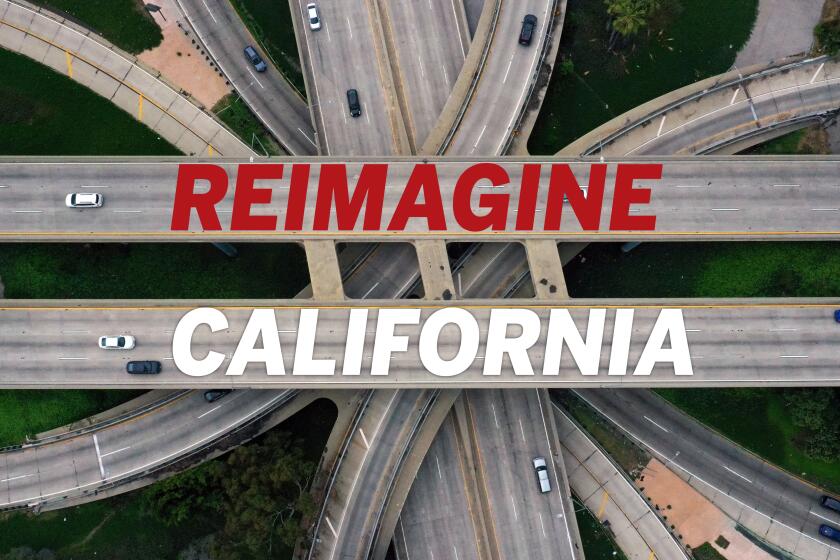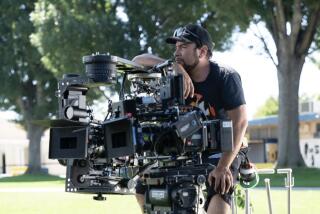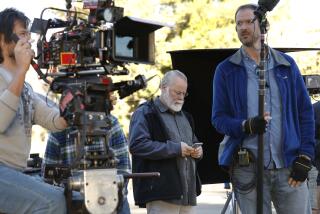Op-Ed: How film and television production can safely resume in a COVID-19 world
- Share via
Like workers in other sectors, many people in the television and film industry in California have been devastated by the coronavirus shutdowns. Tens of thousands of crew members — who often live project to project — can no longer earn a paycheck. Gov. Gavin Newsom’s call to begin reopening businesses in coming weeks was welcome news. In the meantime, because Netflix shows and films are made around the globe, we’re starting to learn how to get production going again despite the crisis.
Filming typically takes place in intimate, high-touch environments, with scores of artists and craftspeople working closely together on tight deadlines. While we will need to change this process — in some cases dramatically — to ensure the safety of cast and crew during this pandemic, the closed nature of sets also offers some advantages. Not least that they provide a relatively controlled environment, where we can track who comes and goes.
We’ve seen this with Netflix productions that are filming today in South Korea, Japan and Iceland, and we’ll learn more once we start shooting again in Sweden this month and Norway in July.
With California debating reopening during the coronavirus, what’s next for the movies? We asked Hollywood
While it’s still in the early days, here’s what we’ve learned so far. For one thing, circumstances vary significantly country by country, and even city by city. So, directors and showrunners need to work with local health authorities to adopt safeguards that take account of the situation on the ground. There is no one size fits all.
For example, in South Korea, where we worked quickly to develop safety protocols so that series such as our new drama “Move to Heaven,” and the popular romantic series “Love Alarm” could continue filming. Testing there is only available for people with symptoms. So all cast and crew have their temperatures checked regularly, and if anyone were to show signs of infection they would be tested immediately and production paused.
In Iceland, on the other hand, testing is more widely available, whether you have symptoms or not. So, the entire cast and crew of our “Katla,” a science-fiction series, volunteered to get tested to start filming again. The tests came back negative, but everyone still has their temperature taken first thing in the morning. The team has also developed strict protocols with local doctors should anyone develop symptoms.
In Sweden, testing is much more scarce. So the cast and some members of the costume and makeup team for the romantic comedy series “Love and Anarchy,” which will resume production this month, volunteered to self-quarantine for 14 days beforehand — and then throughout the planned 11-day shoot.
Equally important are protocols to maintain high standards of hygiene on set, including readily available hand sanitizer, masks and gloves as well as social distancing for the crew. With “Katla,” security personnel monitor the number of people on set at any one time, and the crew’s access is controlled by the use of colored tags on their credentials. Ride sharing is prohibited so everyone drives separately to work each day.
On sets, the usual buffets have been replaced with boxed meals. There is one makeup artist, who uses single-use, disposable applicators for all makeup. Every two or three hours a production assistant announces a break so people on set can wash their hands, and alcohol is used to wipe down doorknobs, loading areas and the craft table. At the end of every day, props are cleaned and wardrobes steam-cleaned.
As our casts and crews return to work, it’s important that we all focus on what can be achieved in the short term, even if we can’t solve every problem. That means rejiggering productions, locations and set schedules to postpone shooting crowd or action scenes and intimate moments, as well as scenes that require international travel. Some shows will need to rewrite scripts or look to add visual effects to what previously would have been shot live. For others, that may be impossible. But if we can get some production going again, safely and smartly, we can learn how best to film under these restricted conditions.
Photos capture Hollywood’s movie houses in this pandemic moment.
The business of bringing stories to life onscreen is built on partnership and trust. We will only make progress if everyone who returns to the set, whether they are in front of or behind the camera, feels safe doing so. Without this basic trust, the creative process breaks down. For example, the “Love and Anarchy” crew members were passionate about completing the series and decided collectively to get back to work quickly, even though they are provided for financially by government support.
None of this is easy, and many questions remain unanswered. But we are cautiously optimistic that we can adapt to this restricted reality. So are filmmakers in Australia, Tyler Perry in Atlanta and others across the industry. There are thousands more crew members anxious to return to work, and millions of people relying on the entertainment they produce.
As we’ve seen during this period of isolation, stories can help connect people even when they are apart. The adage is as old as our business, but it has never been more true: The show must — and will — go on.
Ted Sarandos is chief content officer at Netflix.
Help the Los Angeles Times reimagine what California should look like after the COVID-19 pandemic ends.
More to Read
A cure for the common opinion
Get thought-provoking perspectives with our weekly newsletter.
You may occasionally receive promotional content from the Los Angeles Times.













